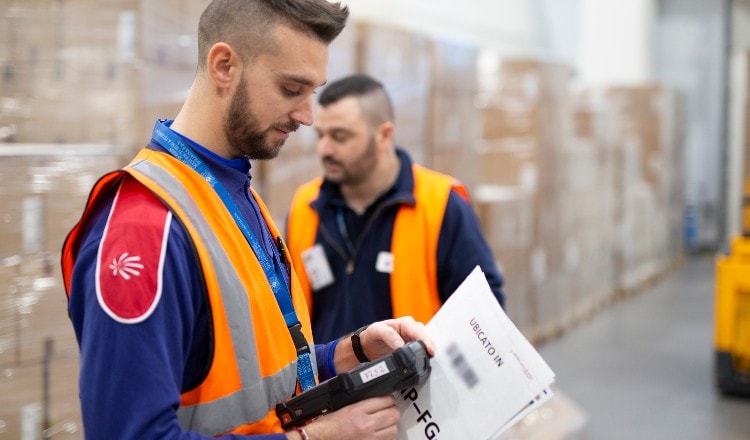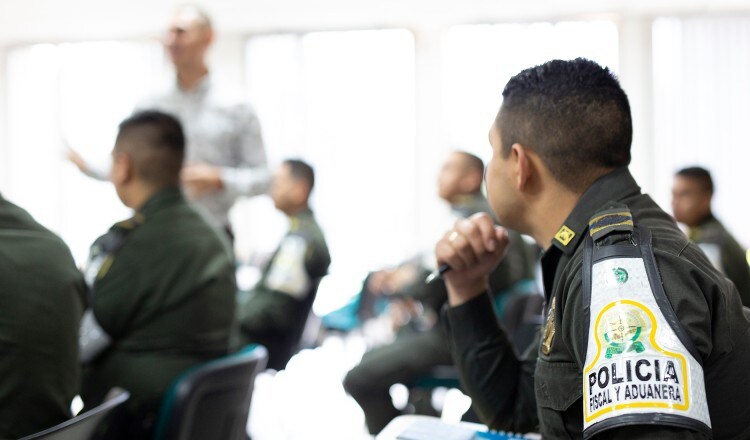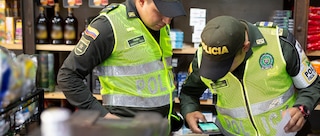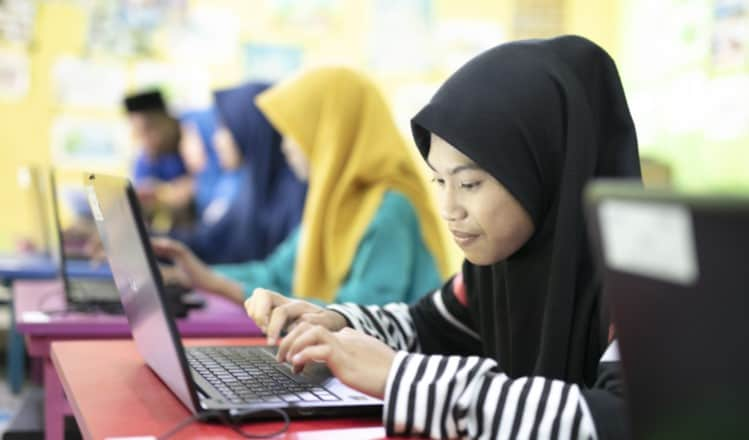Integrated Report 2019
| INTEGRATED REPORT 2019 |
Illicit trade is a global issue often associated with organized crime and even terrorism. It is a serious and growing threat to society. Through smuggling, counterfeiting, and tax evasion, governments are losing tax revenues, legitimate businesses are damaged, and consumers are exposed to poorly made and unregulated products. One out of every 10 cigarettes smoked around the world is thought to be illicit, and governments are losing an estimated USD 40 billion in tax revenue each year.1
Why it is important to us and our stakeholders
Illicit trade has important societal implications. By providing a cheap and unregulated supply of tobacco products, it undermines efforts to reduce smoking prevalence and prevent youth initiation. It also has serious consequences for consumers, particularly due to the low standards of quality and reliability of counterfeit products. For society at large, illicit trade creates an impediment to sustainable development, with the loss of government revenue leading to lower potential spending on public services and civil infrastructure around the world. Furthermore, illicit trade involves extensive corruption and is part of a wider system of illegal activities, threatening human rights and damaging the environment.
Illicit trade and counterfeit products – including smoke-free consumables and electronic devices – can harm consumers and damage PMI’s business and reputation. Tackling illicit trade is therefore essential to protecting our value proposition, ensuring product reliability, and safeguarding PMI’s smoke-free future. Our smoke-free products are the outcome of decades of research and development and are manufactured to high standards of quality. It is essential for consumers not to be exposed to counterfeit products.
Achieving our aims
Our priority is to fight illicit trade and protect our supply chain. This is why we invest in preventive and protective measures, including due diligence of customers, such as importers, distributers, and wholesalers, and comprehensive, digital track-and-trace solutions for our tobacco and smoke-free products across our entire supply chain.
We also provide our affiliates with a set of resources and tools to deepen their technical knowledge of the customer, monitor volumes, and use tracking and tracing technologies. In addition, we invest in building intelligence around the trends, drivers, and impact of illicit trade in the regions in which we operate. Moreover, PMI’s Anti-Diversion Governance Committee conducts high-level governance of the risks and impacts.
PMI strongly believes that cooperation between private and public parties is essential to advancing the global fight against illicit trade. Through PMI IMPACT, a first-of-its-kind global initiative, we committed USD 100 million to support public, private, and nongovernmental organizations in developing solutions to fight against illegal trade and its related crimes. As of the end of 2019, PMI IMPACT had allocated a combined USD 48 million for the implementation of 60 projects in 30 countries as part of the initiative’s first and second funding rounds.
Progress in 2019
Fighting diversion
Since 2018, we have applied a risk-based approach to focus our resources where they are most needed across our markets. As noted in previous reports, we have had success in several markets. In Ukraine, for instance, our tracking and tracing second- and third-level deployment allowed for better product-flow monitoring and seizure follow-up. We also faced increased challenges in countries such as Turkey, where the difficult economic situation and currency devaluation increased price gaps versus other markets and therefore required higher levels of control to prevent diversion. Our affiliate continued to deploy the standard controls such as Know Your Customer practices, enhanced volume monitoring with a more granular analysis of distributors’ and customers’ sales and implemented specific anti-diversion training.
Price differentials can be a driver for diversion, which is why in Colombia, where the retail price of heated tobacco units is lower compared with other markets, our affiliate reinforced its partnership with law enforcement agencies to prevent potential international diversion from our supply chain.
Illicit trade respects neither borders nor laws and affects different regions around the world. In the EU for instance, data from the 2018 KPMG Stella Report has shown that, while illicit cigarette consumption remained stable at 8.6 percent of total consumption, the number of counterfeit cigarettes grew 33 percent, to 5.5 billion, the highest level since the study began in 2006. The growth in counterfeit is an indication that organized crime groups continue to be active, and it should be seen as a call for public-private cooperation to protect society, consumers, and legitimate industry stakeholders.
In 2019, we provided support to law enforcement agencies around the world by sharing our expertise through dedicated sessions on how to recognize a counterfeit product from a genuine one. Thanks to that cooperation, in Europe, for example, law enforcement dismantled 30 factories producing millions of counterfeit PMI-branded cigarettes in Poland, Greece, and the Slovak Republic, among other countries.
No one government or industry can address this complex problem on its own. Tackling illicit trade requires collaboration among all stakeholders, making full use of learnings, information sharing, and innovative solutions to create a ripple effect that benefits society more widely. PMI is leading the way on anti-diversion techniques, and we are sharing our extensive experience with other industries such as pharmaceuticals and food.
The EU Tobacco Products Directive
PMI welcomed the entry of the first-ever EU-wide tracking and tracing system for tobacco products, implemented under the Tobacco Products Directive (TPD). This is a positive step for the prevention of illicit tobacco trade. In line with the directive, individual packs in the EU are identifiable at point of sale by a unique identification code, giving law enforcement authorities capability to trace them back, from place and date of production, through all the distribution layers down to the points of sale.
In 2019, we focused our work on meeting the TPD requirements. We set up a cross-functional team of more than 200 people from all 28 EU markets. We prepared eight factories, eight third-party manufacturers, and 140 production lines to apply and control codes on packs. We upgraded all factory tracking systems and installed anti-tampering devices on our production lines. We adapted the logistics systems and processes of a total of 80 PMI warehouses in Europe, and we aligned our master data systems accordingly. Furthermore, we adapted core transactional systems to meet the newly mandated reporting requirements. All packs now carry an EU code and a tamper-proof security feature aligned with mandated specifications for all destination markets.
Knowledge sharing
The transfer of expertise and experience is at the core of fighting illicit trade. Whenever possible, PMI works with private and public parties to advance global anti-illicit trade efforts. We work in close collaboration with authorities to identify and bring to justice those involved in illicit trade, using our experience, network, and technology to provide support.
Preventing the diversion of smoke-free products
With the rapid expansion of our smoke-free business, our product supply chain is exposed to risk of diversion and counterfeiting. Such actions directly affect consumers’ access to a quality product. We must protect our consumers and secure sustainable business growth.
We are continuously building our understanding of the illicit trade challenges facing our smoke-free product portfolio in regions around the world.
In Malaysia, the thorough training of retail teams has led to instances of retail staff recognizing a fake product being delivered to a store and calling it in for investigation. In Colombia, we use a carefully designed set of retailer controls to assess each sales channel. We also implement illicit trade prevention training at all points of sale in the country, and our affiliate there has improved the way distribution is authorized on the country’s largest e-commerce platform to minimize the spread of resellers who might infringe our trademarks or impersonate PMI.
We are mitigating illicit trade risk using tighter contractual arrangements and more robustly controlled reverse logistics processes, based on centralized inspection and recycling. In Germany, for example, to secure the supply chain from supplier to consumer, we enhanced our Anti-Counterfeiting Protocol with our supplier of critical electronics components such as blades, chargers, and batteries. In the unlikely event that a counterfeit IQOS device makes its way into the market and is then sent back to PMI via our reverse logistics chain, it will be detected. This will allow us to improve reliability, gather risk intelligence, and work with enforcement agencies to combat the problem.

Examples of PMI IMPACT projects
BalkanSmugg involved research into attitudes to illegal trade along the Balkan smuggling route. The Institute of Economics, Zagreb (EIZ) completed a project in 2019 that explored experiences of illegal tobacco trade among citizens of seven Balkan countries. The team surveyed 21,000 people on smokers’ habits and experience of buying cigarettes and cut tobacco, including purchasing on the gray market. A central finding was the size of the gray market and illegal trade in cigarettes and other tobacco products. The data collected are helping to set the context and determine where to focus resources. Croatia is being used as a case study for deeper analysis. EIZ is a public scientific institute with 80 years of economic research experience.
INTA, an information technology company, ran a training program on image analysis and suspicious-object recognition for Lithuanian customs officials working with cargo scanners. The training was designed to enhance the skills of every image analyst, making them proficient in image workstation software tools, as well as in techniques for image interpretation and threat detection. The training provided customs officials with an understanding of the overarching security trends that affect inspection processes and taught them how to undertake image analysis effectively and efficiently (including for weapons, narcotics, currency, contraband, undeclared goods, and other items of interest). The project aimed to streamline communications between the screener and searcher on X-ray machines to enable a faster and more efficient process.
Read more in the PMI IMPACT Report 2019.
Next steps
In 2020, we will continue cooperating with law enforcement agencies by providing awareness and technical trainings and deploying tracking and tracing processes to maintain our supply chain integrity.
PMI IMPACT will continue to support projects, helping to combat illicit trade and its consequences by promoting multi-stakeholder collaboration. PMI IMPACT is ready to welcome new projects that foster global partnerships and create synergies to enable sustainable solutions in the fight against illegal trade and related crimes. We aim to keep building our understanding of the illicit trade challenges related to our smoke-free products, protect our business vision of a smoke-free future, and provide consumers with genuine, high-quality products.
This online supplement to our integrated report should be read in conjunction with PMI’s Integrated Report 2019. The information and data presented in this online supplement cover the 2019 calendar year or reflect status at December 31, 2019, worldwide, unless otherwise indicated. Where not specified, data come from PMI estimates. See About this online supplement for more information. Aspirational targets and goals do not constitute financial projections, and achievement of future results is subject to risks, uncertainties and inaccurate assumptions, as outlined in our forward-looking and cautionary statements.





